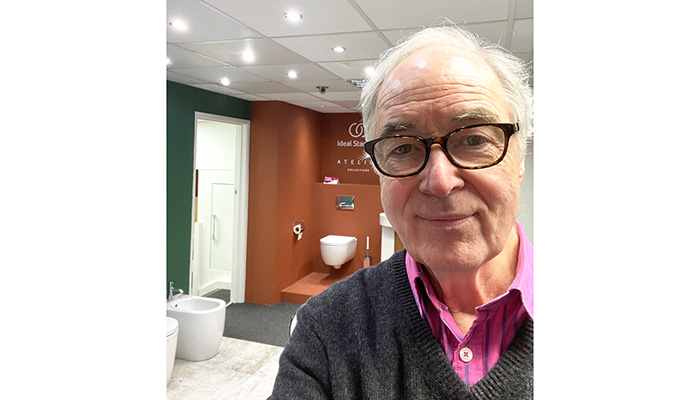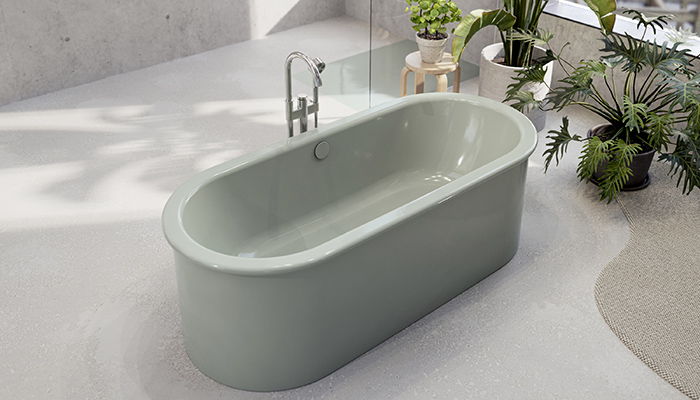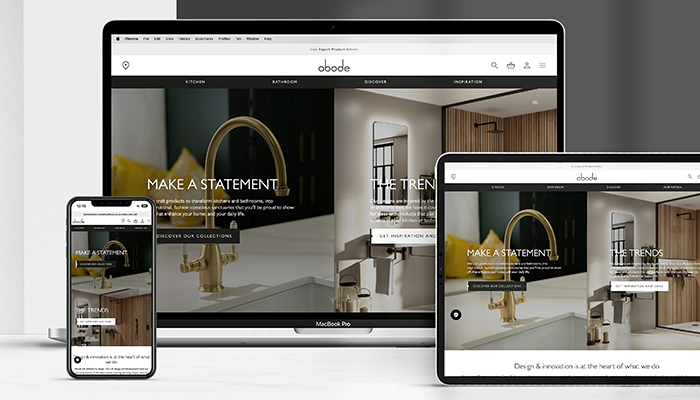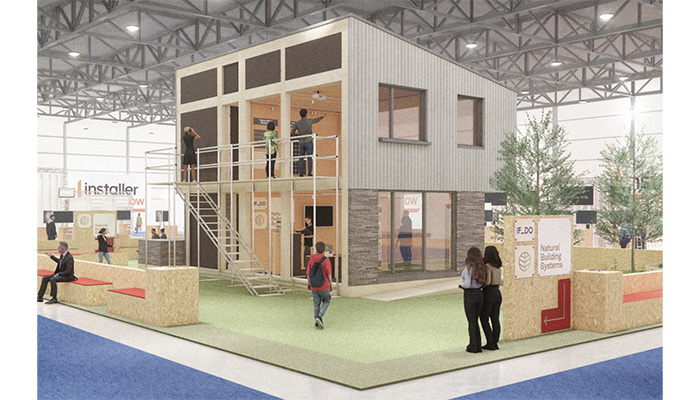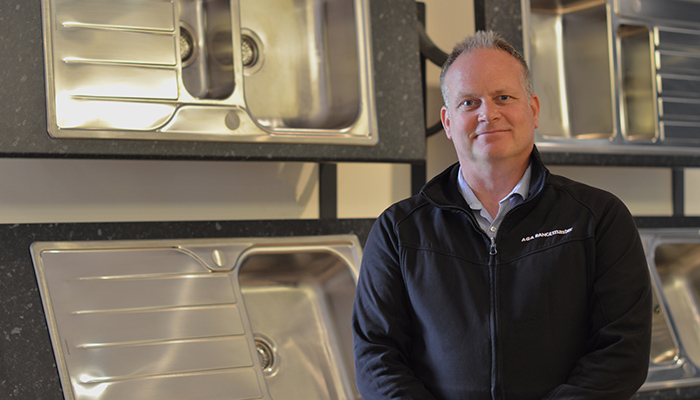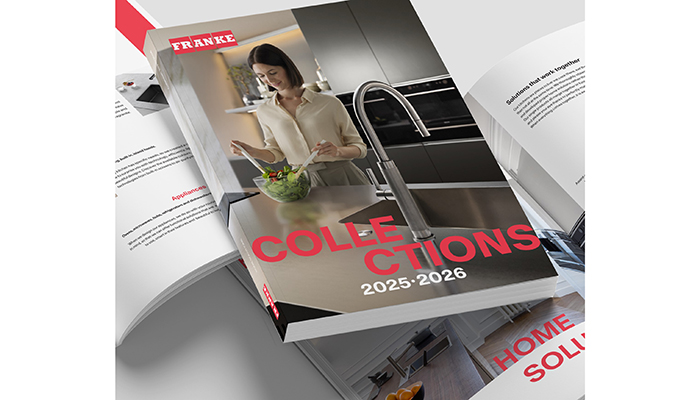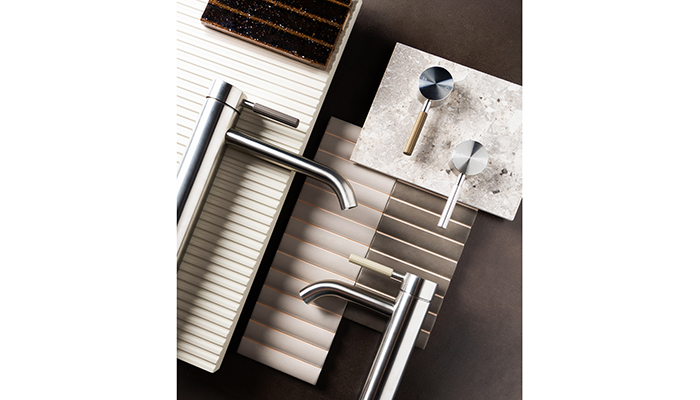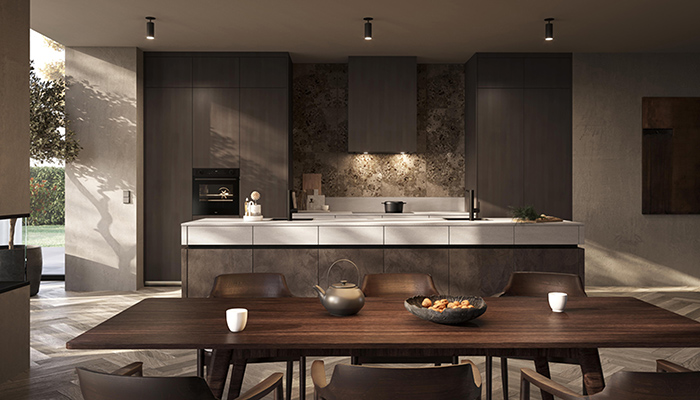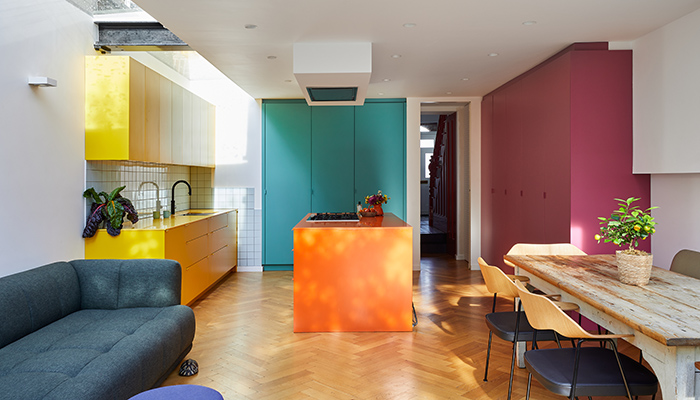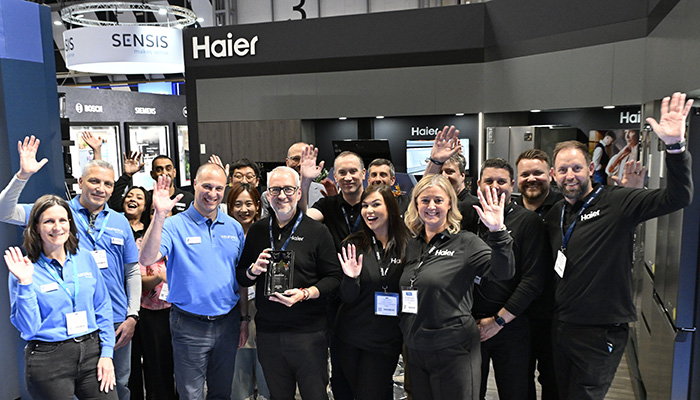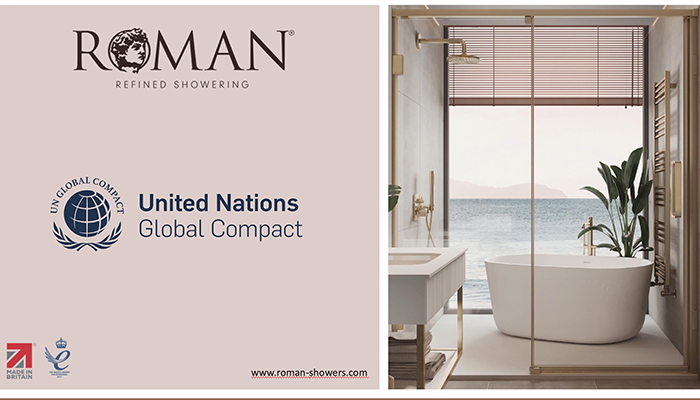Forward-thinking MD of Island Bathrooms, David Lees-Bell, has introduced an e-commerce strand to his bricks-and-mortar showrooms in Bournemouth and Salisbury, and more recently become a director of Drench.co.uk. He tells Tim Wallace why there’s no future for bathroom showrooms that just sell from the store.
Q: What’s your business model?
A: We have two showrooms in Bournemouth – one for the trade and then the original showroom over 3 floors that I launched 43 years ago. We also have a third store in Salisbury which I took over 10 years ago. I’m also a director and shareholder of Beyond Retail, which is the Drench bathroom website. We’ve got a turnover there of about £55m. My sons do all that. I prefer to meet people rather than the online side. We also do a lot of trade and contract work.
Q: But you also sell products online through the Island Bathrooms business. Is there still a place for traditional showrooms that don’t embrace e-commerce?
A: I don’t see a future for showrooms that just sell bathroom equipment from the store. They’ve got to have some kind of online presence selling something. Since Covid, everybody wants it the next day. A competitor has just opened up a large showroom and I really can’t understand the thought process behind that. If I had £200,000 I’d invest it on an online store – not open another bricks-and-mortar showroom and hope for the best.
Q: Would that be your advice to any bathroom retailer?
A: It’s all about the area. We’re busier in Salisbury than we’ve ever been but in Bournemouth business is quite flat. There’s more money in Salisbury whereas in Bournemouth there’s lots of competition and lots of younger people. Our customer is now 50-plus in Bournemouth. It’s also the ridiculous cost of trade that’s putting people off doing projects. I’m hearing about £600 a day for a plumber because they’ve all gone back to Poland.
Q: How frustrating is it that showroom brands are being sold cheaper online?
A: What angers me is that manufacturers aren’t doing anything about it. Since June they’ve been able to but they don’t want to rock the boat. One big bathroom supplier says it is supporting bricks and mortar, but during Covid Drench was getting so many good deals from them. It was disgraceful. To say they’re backing showrooms is rubbish because it wasn’t happening at that time. It’s route to market and they don’t really care. They get you to put so many bays on display and then go to Victorian Plumbing.
Q: Are you looking at niche brands that don’t have a big online presence?
A: Yes, but there aren’t many. What Vado has done in the last month or so has been brilliant. Vado and BC Designs are the only companies that have backed bricks and mortar showrooms. They’ve told people who sell online they’ll get less discount and it’s working. We’re selling more Vado and they’re increasing their turnover.
I’ve told one supplier not to come into my showroom until they do something about it. Their rep said he would offer products to me as an exclusive deal. Little did we know they were already on display in a builders merchant. Their sales director says he’s looking into it but that’s all they ever say. All they’ve got to do is give online retailers 30% off and those who give up space in their showrooms 50%. Where’s the problem in that?
Q: Wouldn’t that mean brands losing out on vital revenue in a tough climate?
A: Yes, so they don’t want to do it. We’ve got nowhere with Hansgrohe. The route to market has never been better for them. They don’t even have to touch the stuff. They’re happy sending out 50 toilets a day to a website. What are they going to send to me? Two taps a week? They don’t want to upset the apple cart.
Q: So will the future of bathroom retail see an increasingly rapid shift to online?
A: Yes, I’m already connected to Drench.co.uk and I know the score. You have to be young and prepared to work hard. You need good technical people behind you, you’ve got to have the right warehousing and the right systems and be prepared to accept returns. There’s also a huge cost – in case anyone thinks there isn’t if you don’t have a showroom. They still have to pay huge salaries to very talented people.
They don’t need me. I’m 73 – I’m old school. The future for showrooms is null and void. These people are very intelligent, they know percentages, they know how Google works. There’s more to it than building a website and expecting it to sell. Three of my kids work at Drench. They’re all from business management university courses.
Q: What kind of showroom is best placed to survive in this market?
A: Little showrooms with choice who have installation teams. People like us are probably known as a box-movers, but we have 14 installation teams and do great turnover.
Q: How’s business across the three showrooms?
A: Turnover is about the same. We do about £3.5-£4m a year. Our profit margin is slightly down but we’re healthy because we own the buildings. Whereas I had a Cifial rep in recently who said 6 of the showrooms he used to visit in the South have closed down since last year.
Q: What else frustrates you about showroom retailing?
A: What we hate most is people taking pictures and price checking. It’s not the price that puts customers off, it’s just the convenience of pressing the button and ordering it. I’m a 40-year trained plumber who knows what he’s talking about. People need to come into the showroom to make sure they’re buying the right thing. We can spend 8 hours a day on that and give them a free plan. But then they go home and order it online. They can also send it back free of charge. We used to charge £150 for a design, but customers would just go to the retailers who don’t.
Q: In what ways did Covid change the business?
A: One of the main things we’ve changed is we don’t do two-man deliveries anymore. We only do one, which has driven down our costs. We’ve become a bit leaner and more efficient. Each time we’ve gone into a recession we’ve changed it. We’ve probably dumbed down on the expensive gear we sell and put cheaper variations in.
